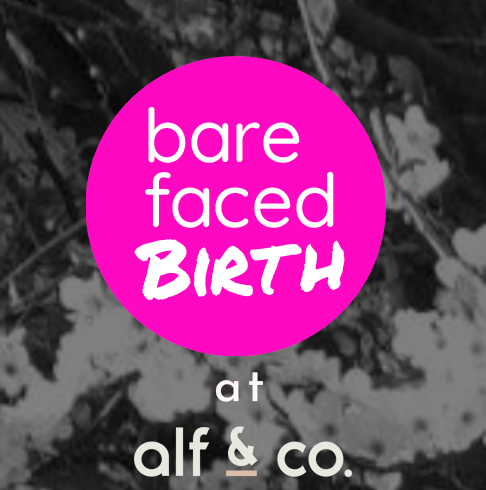
Let us introduce you to BareFaced Birth - Hypnobirthing & Antenatal classes in Nottingham.
The fabulous Kerry from BareFaced Birth holds her in person sessions in our Nottinghamshire independent children's store and to help you get to know her we are delighted to be able to share some of her blogs and stories with you here.
This week we are bringing to you a fantastic blog by Kerry - What is Prolactin?
---------
What is Prolactin?
Prolactin is often referred to as the “mothering” or “nurturing birth hormone!
It is a hormone made in the pituitary gland. The pituitary gland is about the size of a pea and is located just behind the bridge of your nose. It’s main function is that it regulates and monitors your bodily functions by the hormones it produces including prolactin.
Prolactin increases during labour & can peak when labour starts on its own! It is central to breast milk supply & production.
There are some suggestions that during early pregnancy prolactin may have some stress reducing effects on your baby. During later pregnancy, prolactin increases to form prolactin receptors in the brain and in the mammary glands (based on animal studies) and near pregnancy term prolactin production is thought to increase the uterine lining which means it may play a role in helping to start labour (J Perinat Educ. 2015; 24(3): 145–153).
It aids bonding with our baby and creating a beautiful attachment and helps our newborn babies adjust to life outside the womb. and it also supports healthy newborn development. Early and frequent breast/chest feeding can help to promote prolactin receptors which may help with ongoing milk production.
Other benefits may include reduced anxiety, aggression, and muscular tension; and increased social desirability (conformity), which may help mothers to prioritise infant care.

What can impact Prolactin production?
Studies and research are limited in regards of prolactin physiology (which means the natural occurrence of prolactin) but it is thought that stress during labour may reduce prolactin secretions which in turn may potentially impact breastfeeding (J Perinat Educ. 2015; 24(3): 145–153). Keeping your birth environment calm and stress free as possible may help to minimise this. Check out my “creating a birth environment blog here” for some tips for creating a clam stress free birth environment.
Pain relief such as epidurals may cause prolactin elevations in labour and postpartum reductions in prolactin. Inductions with synthetic oxytocin (drip) may also impact psychological/natural release of prolactin which could affect breastfeeding success (J Perinat Educ. 2015; 24(3): 145–153).
A ceasarean birth option may also impact breastfeeding success if the birther misses their pre labour prolactin elevation and the late labour peak and/postpartum elevations (J Perinat Educ. 2015; 24(3): 145–153)
There are lots of ways that you can help boost your prolactin levels so incorporating these within your birth plan may help establish breastfeeding and milk production.
How can we increase prolactin?
-
Waiting for labour to start on its own to help.
-
Keeping calm & relaxed during labour and after baby is born.
-
Breast/chest feeding baby soon after birth & on cue.
-
Regular breast/chest feeding and/or expressing in the early days after birth will keep to keep prolactin flowing.
-
Keeping mother/birth parent together soon after birth.
-
Allowing baby to go through their “9 natural newborn instincts” after birth during skin to skin which can help with latching and breast attachment.
-
Prolactin is at its highest during night time, hands up for those night feeds
Foods

Certain foods & herbs may help to increase prolactin such as fenugreek, oats, barley, papaya, dates, and apricots and incorporating them in your meals may help to support your prolactin.
Fenaugreek is a great herb to incorporate into curry’s and Nisha Katona does a lovely easy home made curry that uses this herb. You can even batch cook this during pregnancy ready for the the postnatal period! I have tried and tested this recipe myself!
When we think of oats we think of porridge but there are lots of recipes/baking that you can use oats in such as crumbles, oat bars and granola. Overnight oats are a great one to make up and leave and having them ready to go in the morning with minimal prep after a long night!
Prolactin like other birth hormones thrives on a supportive, calm, stress free birth environment & low lighting. This can be continued even after you arrive at home keeping that home environment relaxed and calm, get those fairy lights out, enjoy skin to skin and taking each moment as it comes.
Source: (J Perinat Educ. 2015; 24(3): 145–153)

